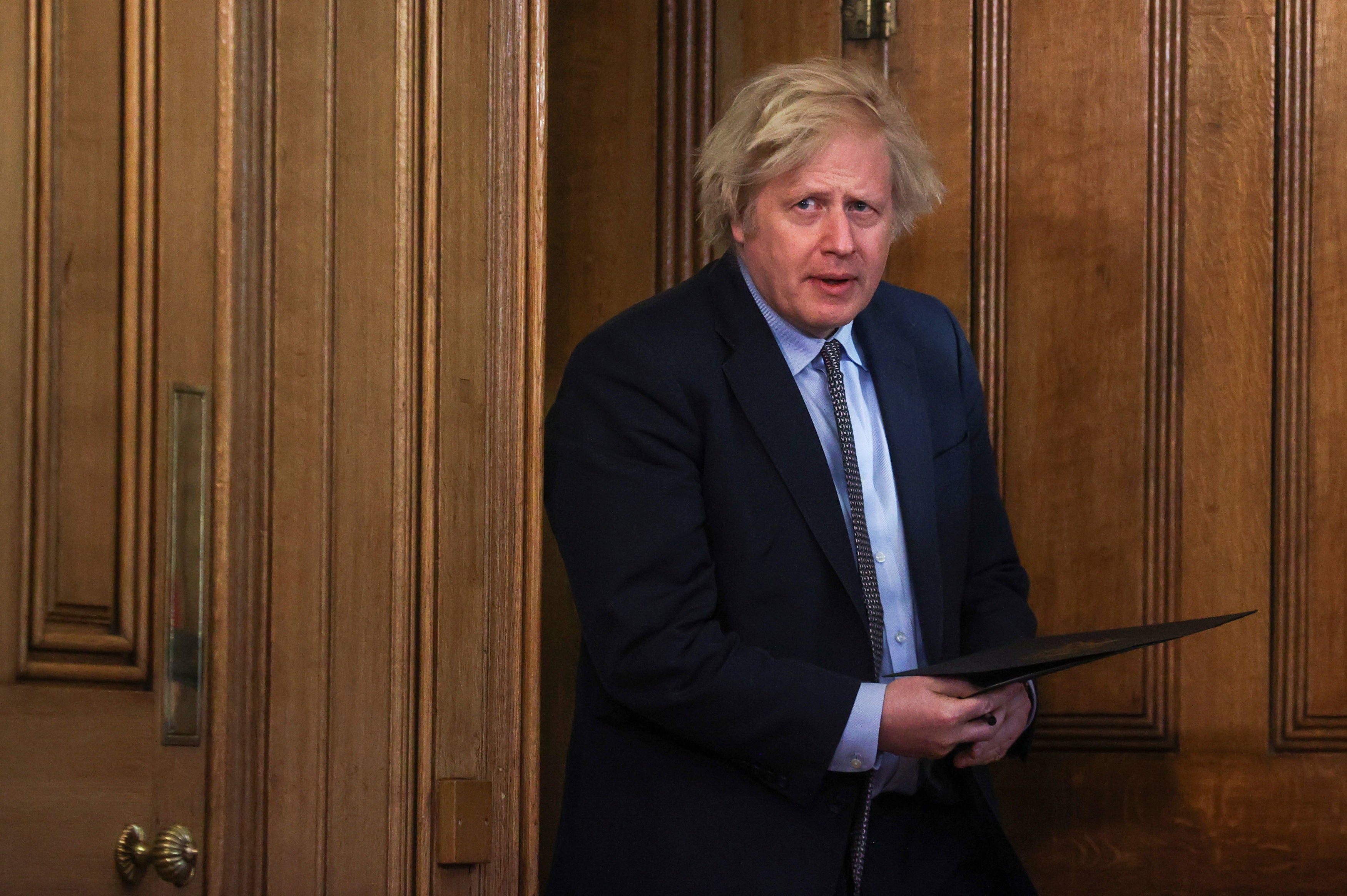The Tory rebellion over emergency coronavirus powers is likely to be bought off tomorrow
MPs will vote to renew Covid restrictions tomorrow, but John Rentoul argues that Boris Johnson will buy off his backbench rebels


The Commons votes to renew emergency coronavirus laws tomorrow could be embarrassing for Boris Johnson. A big Conservative rebellion won’t stop the powers being extended, because, as Lisa Nandy, the shadow foreign secretary, said at the weekend, Labour “won’t be standing in the way”.
I assume Labour MPs will be whipped to vote with the government rather than abstaining, as Keir Starmer has been stung by the “sitting on the fence” jibe, but either way, the government will win the votes easily.
The only question is how big the rebellion of anti-lockdowners will be. At the end of the November lockdown, 55 Conservative MPs defied their whip to oppose the pre-Christmas coronavirus measures. If that many rebel again it won’t have any effect on the result but it will sour relations between Johnson and his backbenchers – especially as Sir Graham Brady, chair of the 1922 Committee which represents Tory backbenchers, is one of the leading lockdown opponents.
Rebellion is habit-forming in parliament, and the prime minister is keen to discourage it in case issues come along on which Labour and Tory dissenters can make common cause.
So I would expect a deal to be done before the votes tomorrow. There are two things on which MPs will be voting. One is a new set of coronavirus regulations, known as the Health Protection (Coronavirus, Restrictions) (Steps) (England) Regulations 2021. These set out the rules to accompany the three “steps” out of lockdown that Johnson described in his roadmap. Step one on 29 March; step two “not before” 12 April; step three “not before” 17 May; and the lifting of most restrictions “not before” 21 June.
Many of the Tory anti-lockdowners want to see those dates brought forward. Mark Harper, chair of the Covid Recovery Group of MPs, argues that most restrictions should be lifted by the end of April, because those at risk of dying from coronavirus will be protected by then. But the dates themselves are not in the regulations: the regulations only lay down the rules that will apply at each “step” when ministers activate them.
Read more:
The rebellion will come on the second subject being voted on, the renewal of the temporary powers under the Coronavirus Act. The government has said it intends to extend the powers for a further six months until the end of September.
This is the bit that annoys the Tory rebels. At the weekend Harper demanded to know why, if we were hoping to “reclaim our freedoms” on 21 June, the powers would be needed for a further three months. The government response was that the furlough scheme, which has been extended to September, has been legislated for under the Coronavirus Act. Harper tells me this is “misleading”, because the furlough powers come under the permanent part of the act rather than under the temporary, renewable part.
However, other rebels suggest that the government is preparing to retreat. Matt Hancock, the health secretary, has already written to Tory MPs saying that the regulations will make an exclusion for protests in the rules against public gatherings. He also said that 12 minor changes would be made to the Coronavirus Act.
We can expect to see further changes, probably made late in the day (to discourage the rebels from simply demanding more). One rebel predicts that if the extension is reduced from six months to three, “there’ll be hardly anyone” voting against.
There will be a big argument at some point, no doubt, about the speed of unlocking. Harper challenged the prime minister at the online meeting of the 1922 Committee on Tuesday night, and Johnson told him: “People want certainty over haste.” For the moment, the prime minister has public opinion behind him, but Harper and his allies believe that the mood is shifting. A Savanta ComRes poll this week, for example, suggested that 42 per cent of under-35s follow the government’s advice “sometimes” or “not at all”.
There may come a point when Johnson will find it hard to hold the line. But it won’t be tomorrow.
Join our commenting forum
Join thought-provoking conversations, follow other Independent readers and see their replies
Comments